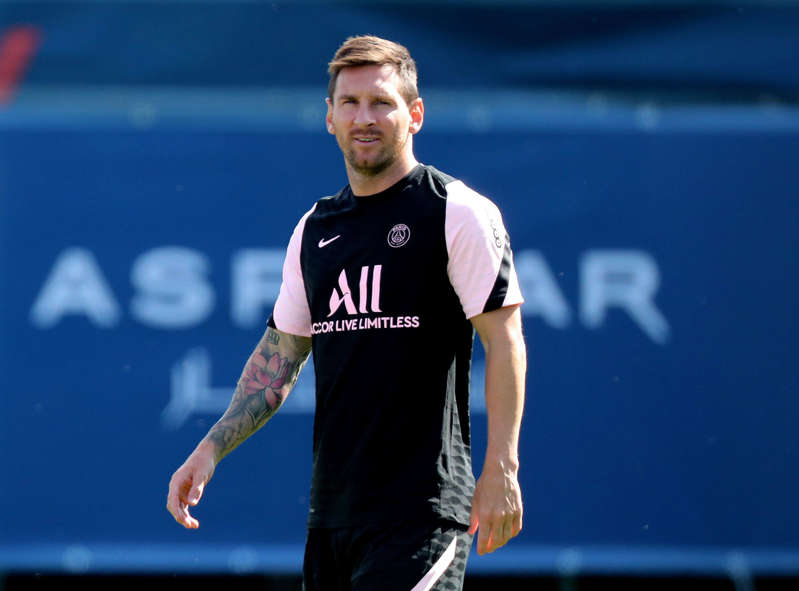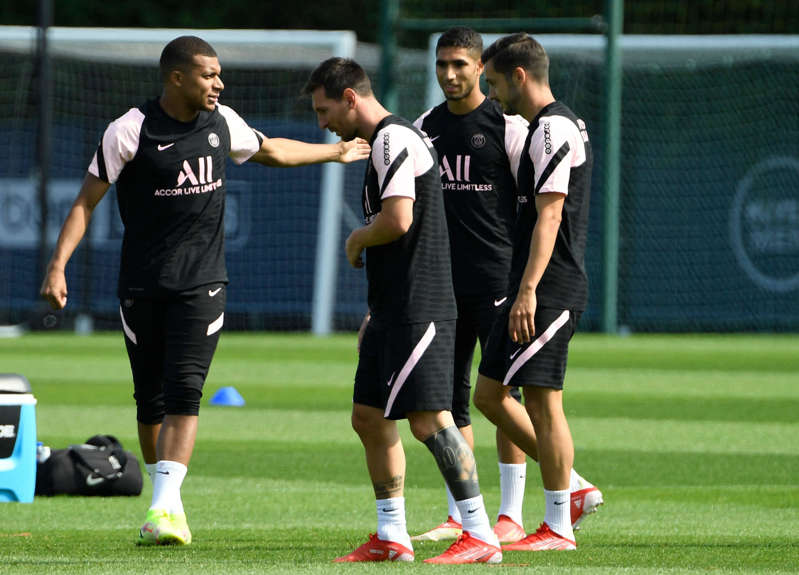Despite financial fair play, PSG, ManCity and Chelsea are throwing millions around. Now there should be a new treat from UEFA.

With prominent spectators in the stands, Paris Saint-Germain is tackling the first home game of the new season in French Ligue 1. Lionel Messi will not be able to influence the events against promoted Racing Strasbourg on Saturday. The debut of the hype in France is not expected until the end of August. Other Parisian stars are not really at their best either.
PSG was already struggling at the start of the league. In the 2-1 away win against Troyes – another House of Lords returnee – Neymar, Marco Verratti and Angel Di Maria were also missing, starting with neo-keeper Gianluigi Donnarumma. The new defense chief Sergio Ramos is injured and will have to take a few weeks off. It was initially unclear who was available against Strasbourg. After all, Kylian Mbappe is a fixture.

A treat from UEFA
While the club fueled the Messi hype on Friday with a 15-minute clip of a training session – warm-up exercises could be seen – observers keep rubbing their eyes. The fact that PSG, Manchester City or Chelsea continue to throw hundreds of millions in spite of Financial Fair Play (FFP) is preoccupying their competitors. “I occasionally rub my eyes in amazement at how it all works,” said Bayern Munich coach Julian Nagelsmann, for example.
It should not be a coincidence that the furor over the behavior of sheikhs and other investor clubs has leaked some UEFA candy. In the coming year, it wants to do with the FFP what critics believe that the regulation that has existed for eleven years has in fact long been done: abolish it. Instead, according to a report by The Times, a salary cap will be introduced and violations will be punished with a luxury tax.
70 percent for salary
At the FFP, the clubs are allowed to show a deficit of a maximum of 30 million euros in the past three years. The new proposal stipulates that in future it will be considered annually and 70 percent of sales may be spent on salaries. If you are above this, the luxury tax must be paid as a penalty, which is then distributed to clubs over a pot. Only repeat offenders are excluded from the European competition, as is the case with the FFP.
For comparison: According to a report by the auditor KPMG, Paris had annual sales of 541 million euros in the 2019/20 season and spent 405 million on salaries, i.e. almost 75 percent. With Messi and Co., both numbers will now increase. The new stars will have to pay quite a fee, but sales will rise to new heights through merchandising and other income.
The new proposal is to be adopted at a summit on the future of European football in Switzerland next month. PSG boss Nasser Al-Khelaifi will also have a say there as UEFA executive member and head of the European club association. The luxury tax should put a smile on his face, because money is really not the problem at PSG and in Qatar.

